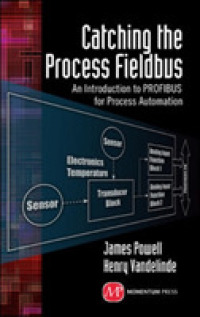Full Description
This collection brings together some of the most influential contemporary voices within the intellectual tradition of philosophy of education, each a recipient of the James and Helen Merritt Award for Distinguished Service to the discipline. The book offers readers a rich tapestry of perspectives that both honor the field's intellectual heritage and chart new territories for exploration. The contributors engage with questions of global responsibility, equity, spiritual growth, democratic renewal, and technological change-all while maintaining the philosophical rigor that has characterized this intellectual tradition since its inception. As educational systems worldwide face unprecedented challenges and transformations, these essays provide essential theoretical and philosophical frameworks for examining the fundamental questions that lie at the intersection of philosophy and educational practice.
Contents
Section 1: Situating Philosophy of Education Within the (Perennially) Perilous Present.- 1. How Do We Fight for Democracy in a Post-Truth Infosphere?.- 2. Democracy and Education in an Age of Spectacle.- 3. Liberal Education and Global Responsibility.- Section 2: Philosophy As Education: Inquiry, Dialogue and the Narrative Imagination.- 4. Philosophy of Education as a Form of Inquiry.- 5. Beyond the Comfort Zone, or Sallying Forth with Don Quixote: Facing Fear with a Philosopher of Education.- 6. Considering Philosophy for Education: A Curmudgeonly Challenge to Commercialism, Reductionism, and the Quest for Certainty.- 7. The Pedagogical Imperative of Pedagogical Imperatives.- Section 3: The Need for Spiritual & Existential Adventures in Philosophy of Education.- 8. Compassionate, Spiritual, and Creative Listening in Teaching and Learning.- 9. The Importance of All We Do Not See.- 10. "First They Came for Me:"... Educational Implications of AI's Instrumentarian Power and its Neoslavery.- 11. Learning New Connections: Philosophy of Education, Relationality and Educational Technologies.- Section 4: The Continuing Significance of John Dewey.- 12. John Dewey and the Education of Public Interest.- 13. Classrooms as Dangerous Outposts? Arendt and Dewey on the Crisis of Teacher Authority.- 14. Teaching Hope and Reviving Democracy.- Section 5: On Bringing the Philosophic Spirit to the Nation's Youth.- 15. Does Teaching Children Philosophy Educate Them? Some Anti Platonic Reflections on Doing Philosophy with Young People.- 16. Maria Montessori: Education for Peace.- 17. What Youth Can Do: Philosophy and Political Action.- 18. Never Too Young for a Liberal Education: Philosophizing with Children - Past, Present, and Future.







